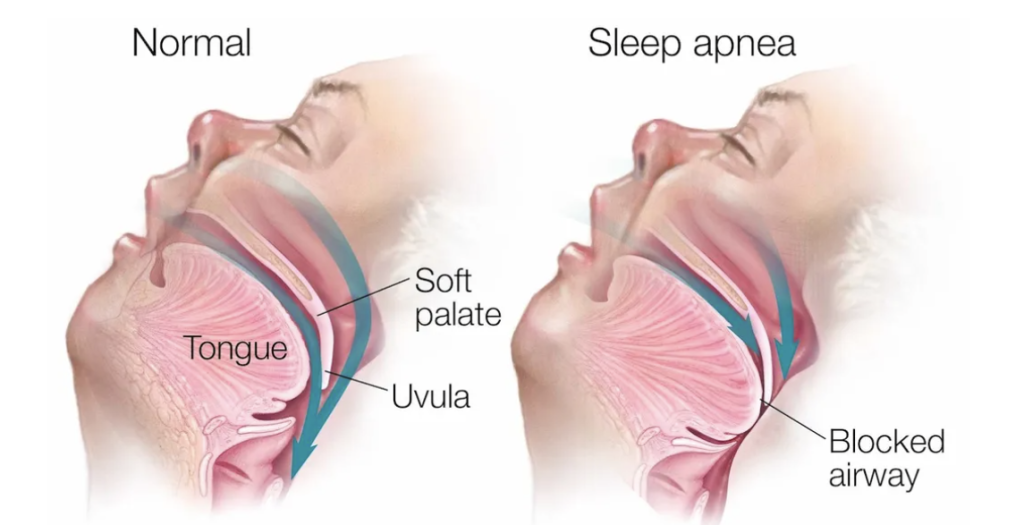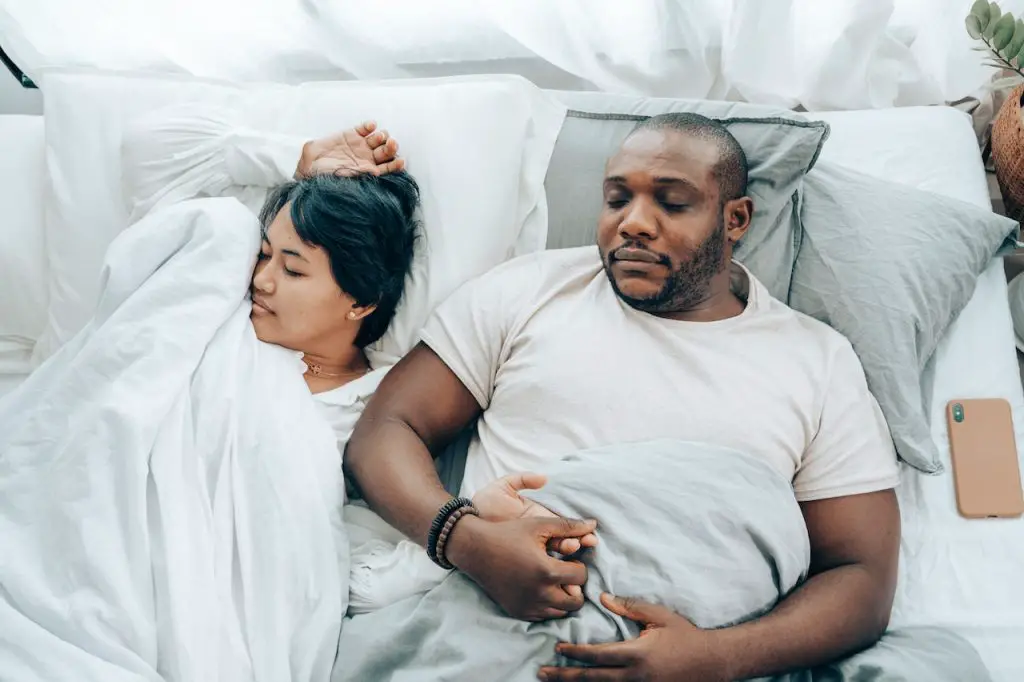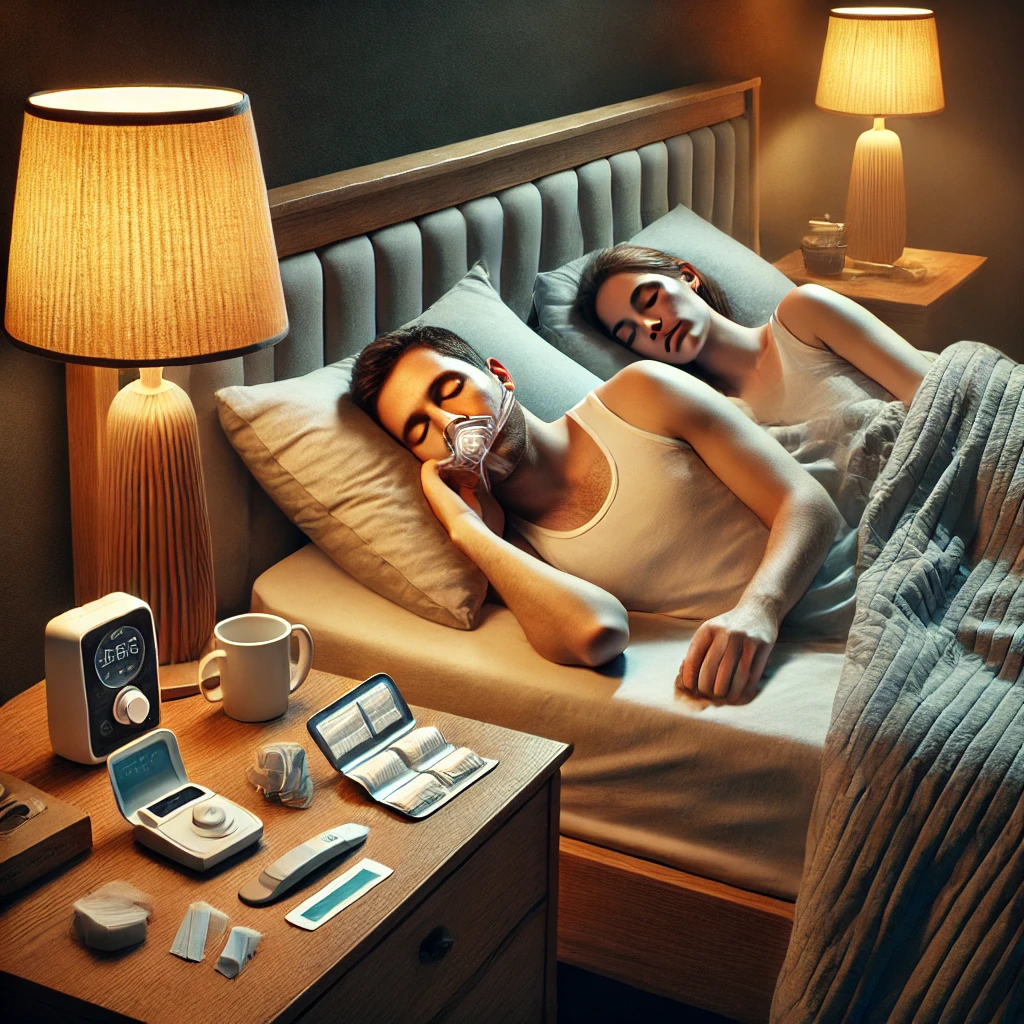Snoring. That rumbling, sometimes whistling sound that disrupts sleep and tests relationships. It’s a common problem, affecting millions, yet it’s often brushed off as just annoying. But what if it’s more than a nighttime nuisance? What if a stop-snoring device is the answer to better sleep and health for you and your loved ones?
For years, snoring has been a source of frustration, impacting sleep quality, creating tension in personal lives, and raising potential health concerns. For many, it’s embarrassing, both for the snorer and their partner.
Table of Contents:
- Why We Snore: Understanding the Causes
- Health Implications of Snoring
- Exploring Stop Snoring Devices: A Comprehensive Guide
- Lifestyle Changes and Home Remedies
- Conclusion

Why We Snore: Understanding the Causes
Snoring occurs when air can’t move freely through your throat and nose during sleep. This causes surrounding tissues to vibrate, creating that familiar sound. Several factors contribute to snoring, from mouth and sinus anatomy to alcohol consumption.
Allergies, sleep position, and being overweight are also risk factors for snoring (learn how to stop snoring).
Common Culprits Behind the Snore
Nasal congestion, a deviated septum, nasal polyps, or enlarged tonsils and adenoids can lead to snoring. These obstructions narrow the airway, making it difficult for air to pass through smoothly. A low, thick soft palate can also droop into the airway and cause vibrations.
A large or long uvula, the tissue hanging at the back of your throat, can also trigger snoring. Your lifestyle also plays a role, as alcohol and some medications relax throat muscles, making them more prone to collapse and obstruct airflow.
Sleeping on your back often worsens snoring as gravity pulls the tongue and soft palate back towards the throat.
Health Implications of Snoring
Occasional snoring might seem harmless. However, chronic snoring can be a symptom of more serious conditions. This can include obstructive sleep apnea, where breathing repeatedly stops and starts during sleep.

Sleep Apnea: A Serious Concern
Obstructive sleep apnea lowers blood oxygen levels, which stresses the cardiovascular system. Over time, sleep apnea may increase the risk of hypertension, stroke, and irregular heartbeats.
The constant pauses in breathing disrupt the sleep cycle, leading to daytime sleepiness and affecting cognitive function. If you think you may have sleep apnea symptoms, consulting a medical professional and seeking sleep apnea treatment options should be your priority.
Exploring Stop Snoring Devices: A Comprehensive Guide
Thankfully, solutions exist for chronic snoring. Besides lifestyle adjustments, various stop-snoring devices may offer a snoring solution. If you are considering a stop-snoring device, it’s helpful to be aware of the available treatment options.
Types of Stop Snoring Devices
Mandibular advancement devices (MADs) move the lower jaw and tongue forward, enlarging the airway. Tongue-stabilizing devices (TSDs) hold the tongue forward. Nasal dilators and nasal strips open nasal passages for better airflow.
Another snoring aid, known as an EPAP (Expiratory Positive Airway Pressure) device, uses forced exhalation from the nose to reduce airway obstructions. Using an EPAP device, you’ll likely breathe easier with reduced nasal obstruction. Yet another innovative stop-snoring device uses electronic muscle stimulation.
The Snore Circle Electronic Muscle Stimulator Plus, for example, gently stimulates the muscles under the chin to open the airway. You can also pair it with an app that tracks snoring stats, including frequency and loudness. Explore product reviews for snoring aids and snoring solutions.
| Stop Snoring Device | How It Works |
|---|---|
| Mandibular Advancement Devices (MADs) | Positions the lower jaw forward |
| Tongue Stabilizing Devices (TSDs) | Holds the tongue forward |
| Nasal Dilators | Opens nasal passages |
| EPAP | Forces exhalation from the nose |
| Electronic Muscle Stimulation | Stimulates muscles under the chin |
It’s crucial to consult a medical professional about any snoring problems or concerns before embarking on a sleep apnea treatment journey.

Choosing the Right Stop Snoring Device
Finding a comfortable and effective stop-snoring device requires careful thought. Discuss your condition with a physician for personalized recommendations. They may even suggest a sleep test for a more comprehensive evaluation. Your physician can assist in determining which snoring aid is right for you and can treat snoring effectively.
The proper pillow might be a good place to start (stop snoring with the perfect pillow). Always prioritize consulting with a dental specialist or sleep medicine professional before choosing a treatment method.
Lifestyle Changes and Home Remedies
Lifestyle changes and home remedies, in combination with a stop snoring device, can also minimize snoring. These include losing weight, reducing alcohol intake, and avoiding sleeping on your back.
Treating allergies, using a humidifier for better breathing and improved air moisture, can bring significant relief. Throat exercises can strengthen throat muscles, and nasal saline rinses can reduce nasal obstruction, clearing airways.
Implementing a healthy lifestyle, improving airflow, and improving sleep health can all reduce snoring. Consulting a dental specialist for treatment options like oral appliances is crucial for managing snoring caused by teeth grinding or mouth breathing.
Conclusion
Snoring is more than just a disruptive noise; it can strain relationships and even pose health risks, such as heart problems. However, many snoring solutions exist, including a simple stop snoring device.
These tools increase airflow and come in various styles to address specific needs. If you or a loved one experiences persistent snoring or other sleep disturbances, consult a doctor specializing in sleep disorders to find the right snoring solution.
Whether it’s a nasal rinse, lifestyle changes, or a stop-snoring device, effective solutions exist to help make your sleep restful and revitalizing.
Check out our other articles for the very latest Sleep Under Cover content.

